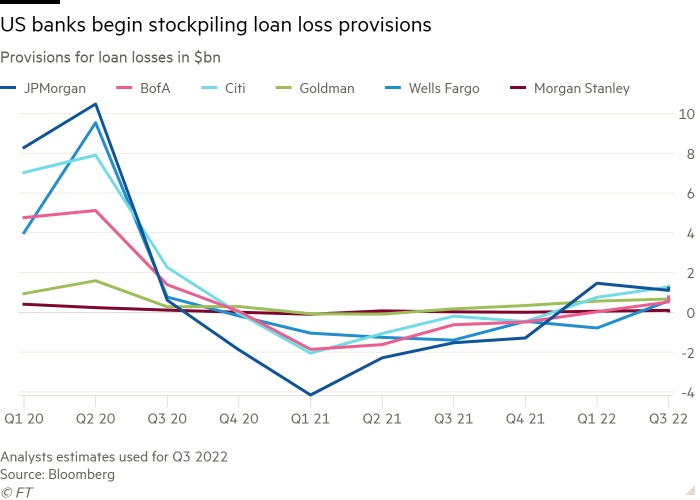2022 is a year of meaningful votes. Some were expected, some were not. Some have more legitimacy than others. This week there will be much analysis on this last point.
The most important of these will be a process of installation rather than choice. The Chinese Communist Party begins its five-yearly congress on Sunday, the highlight of which will be the handing over of a historic third leadership term to President Xi Jinping. Prospects are not good: “a tragic mistake,” according to FT economics editor-in-chief Martin Wolf.
A pressing concern for the Xi government is the slump in the housing market, which along with the zero covid policy and difficult economic conditions has stalled China’s strong growth streak, which for the first time since the early 1990s 1990 will lag behind the rest of Asia. this year, according to the World Bank. Freeing up the Chinese consumer to spend more is the obvious way to restore growth. The problem for Xi and his top lieutenants with this solution is that doing so will mean giving up some of their political power.
Before all that comes another tense issue for Beijing. Monday is Taiwan’s National Day public holiday and the country’s soft-spoken President Tsai Ing-wen will deliver a speech.
China claims Taiwan as its territory. Nicola Sturgeon’s Scottish National Party would like to no longer be considered British government territory. Sturgeon will make that clear in his party conference closing speech on Monday. A day later, the SNP’s risky plan for another referendum on the matter will be heard by the UK High Court.
The British government has refused to grant powers to hold another vote. The two-day Supreme Court hearing is due to conclude on Wednesday.
If the court agrees with the UK government, it would not necessarily be the end of the SNP’s bid for a second referendum, but it would almost certainly defeat Sturgeon’s stated aim of holding a vote in October 2023 because it would have to pass a law.
London’s iconic Battersea Power Station reopens in a new guise, as a retail, leisure and residential building © Jason Hawkes
Speaking of second chances, but far from discussing votes, this Friday London’s iconic Battersea Power Station will reopen in a new guise, as a retail, leisure and residential building.
This feels like good news in interrupted times. Expectations are higher than the building’s four chimneys, one of which you’ll be able to climb, for a fee, in a glass elevator. And the £9bn revamp, completed after numerous previous attempts failed, is so cool that Apple is taking some flats for its British workforce. Whatever your point of view, the restoration of this iconic 1930s building is boosting the local real estate market.
Economic data
It’s a quieter start to the week for markets with the US closed for Columbus Day. However, we will make it up to you as the week progresses.
Inflation is a theme (is it ever going to be?), led by data from the US and China. The Fed will also publish the minutes of its September meeting, which will include indications of its future intentions in terms of tightening monetary policy to stifle the increase in the cost of living.
The annual meetings of the IMF and the World Bank also start on Monday in Washington, throughout the week.
companies
This week will see a mixed bag of results, but a couple of sectors will feature prominently as reporting season kicks off.
A buoyant job market is expected to have helped recruiting firms PageGroup and Robert Walters command higher quarterly net rates. But his trade updates will be watched for signs of slowing demand as fears of inflation and recession mount.
The week will end with a flurry of third-quarter results from Wall Street banks, likely fueling concerns about a US recession. Citi, JPMorgan Chase, Wells Fargo and Morgan Stanley will report on Friday (Bank of America and Goldman Sachs will follow next week) and analysts expect these six institutions to collectively set aside more than $4 billion to cover potential bad loan losses.

On the bright side, third-quarter revenues at JPMorgan, BofA, Citi and Wells are expected to have risen about 4% year-on-year thanks to higher net interest income following Fed rate hikes, notes our banking reporter US-based Goldman and Morgan Stanley, which take a larger share of investment banking profits, are likely to report a drop in revenue given the drop in trading activity.
Read next week’s full schedule here.




